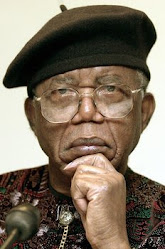Dear Reader, Esther's Diary is a five part short story series. Please go to the previous post for the first part in the series, "Exiled".
ENTRY TWO:
Diary Mu,
(That’s “My Diary” when translated word for word from English to Igbo). Yes, my spoken Igbo is getting much better. I can’t say the same for my Igbo spellings. I think I have anglicized the words. I wish I had taken my Igbo classes more seriously at school.
I’m exactly three months pregnant now. I’m sorry I haven’t written anything since my last entry. Village life is boring. There’s nothing here for me to write about every day. I have settled down to life here. The days feel longer because I don’t have much to do. The first month here was not easy; I really had problems adjusting to life here in the village. I have suffered from malaria four times in the past two months. Now I spray the house with insecticide every blessed night before going to bed and I sleep under a mosquito net hanging from the ceiling.
I bought a stove, cooking pots and a few kitchen utensils at the market the day after I arrived. Getting all those small gas stoves would not have been expensive normally, but my parents keep me on a tight stipend. The money is just enough money for me to get by without suffering. Mum doesn’t work, so she can’t really contribute if she wants to. The good bit is things here in the village are relatively cheap. At first, I was cooking meals like Indomie, Spaghetti (pasta), rice and stew – those meals that do not require any culinary skill. Mama watched me in irritation for some time until she could not contain herself any longer.
‘Bring that pot down from the fire now! Ah ah! Is this what you will eat for you and the baby? I have been watching you cooking rubbish everyday! You need food rich in nutrients, not these snacks!’ She began teaching me how to make soup. Ofe Ogbono (Diary, ‘Ofe’ means soup), Ofe Oha, Ofe Egusi, Ofe Owerri, Ofe this, ofe that. She also tries to make me eat akpu(I don't know what to call that in English, but it's a staple meal made from cassava) but I can’t stand the smell. Garri is much better.
The first month I spent here, I prevented myself from being happy. I thought that being happy in this sinful condition shows God that I’m unrepentant, so I stressed myself constantly, removing Joy from my life, dwelling on my wrongdoing. Uzoh told me to stop thinking like that. He comes every weekend now, defying Dad’s orders. I look forward to his visits. He’s the only person who comes to see me without querying me for information to gossip with others afterwards. He buys me provisions with his pocket money and stays very late sometimes before heading back to Aba. I’m grateful but I worry about him traveling in the night because our roads are not safe.
I follow Onyinye to her shop once in a while. She sews there. Onyinye has sat for the WAEC exam twice and JAMB four times and has decided to stop trying. I sat for WAEC once and cleared all my papers in one sitting. I passed JAMB and got admission to the University of Benin before I discovered I was pregnant. She makes garments in a little stall in the market square. I think she’s really good. When we converse in Igbo, sometimes I don’t understand her but I nod and have to infer to get her meaning.
Mum has come to see me twice. One for each month I have been here. It’s usually to bring me money. She asks how I am and we sit in silence. It’s awkward. Before she leaves, she hugs me but not long enough. The books I've been reading say, my baby’s face should be forming and the arms and legs are developing. It should be able to turn its head now. I’m curious but not excited, does that mean I won’t make a good mother?
TO BE CONTINUED...
Follow Esther's story! Part Three - Untitled , Part Four - My Baby , and Part Five - The Scribbles of a "Stranger"
ENTRY TWO:
Diary Mu,
(That’s “My Diary” when translated word for word from English to Igbo). Yes, my spoken Igbo is getting much better. I can’t say the same for my Igbo spellings. I think I have anglicized the words. I wish I had taken my Igbo classes more seriously at school.
I’m exactly three months pregnant now. I’m sorry I haven’t written anything since my last entry. Village life is boring. There’s nothing here for me to write about every day. I have settled down to life here. The days feel longer because I don’t have much to do. The first month here was not easy; I really had problems adjusting to life here in the village. I have suffered from malaria four times in the past two months. Now I spray the house with insecticide every blessed night before going to bed and I sleep under a mosquito net hanging from the ceiling.
I bought a stove, cooking pots and a few kitchen utensils at the market the day after I arrived. Getting all those small gas stoves would not have been expensive normally, but my parents keep me on a tight stipend. The money is just enough money for me to get by without suffering. Mum doesn’t work, so she can’t really contribute if she wants to. The good bit is things here in the village are relatively cheap. At first, I was cooking meals like Indomie, Spaghetti (pasta), rice and stew – those meals that do not require any culinary skill. Mama watched me in irritation for some time until she could not contain herself any longer.
‘Bring that pot down from the fire now! Ah ah! Is this what you will eat for you and the baby? I have been watching you cooking rubbish everyday! You need food rich in nutrients, not these snacks!’ She began teaching me how to make soup. Ofe Ogbono (Diary, ‘Ofe’ means soup), Ofe Oha, Ofe Egusi, Ofe Owerri, Ofe this, ofe that. She also tries to make me eat akpu(I don't know what to call that in English, but it's a staple meal made from cassava) but I can’t stand the smell. Garri is much better.
The first month I spent here, I prevented myself from being happy. I thought that being happy in this sinful condition shows God that I’m unrepentant, so I stressed myself constantly, removing Joy from my life, dwelling on my wrongdoing. Uzoh told me to stop thinking like that. He comes every weekend now, defying Dad’s orders. I look forward to his visits. He’s the only person who comes to see me without querying me for information to gossip with others afterwards. He buys me provisions with his pocket money and stays very late sometimes before heading back to Aba. I’m grateful but I worry about him traveling in the night because our roads are not safe.
I follow Onyinye to her shop once in a while. She sews there. Onyinye has sat for the WAEC exam twice and JAMB four times and has decided to stop trying. I sat for WAEC once and cleared all my papers in one sitting. I passed JAMB and got admission to the University of Benin before I discovered I was pregnant. She makes garments in a little stall in the market square. I think she’s really good. When we converse in Igbo, sometimes I don’t understand her but I nod and have to infer to get her meaning.
Mum has come to see me twice. One for each month I have been here. It’s usually to bring me money. She asks how I am and we sit in silence. It’s awkward. Before she leaves, she hugs me but not long enough. The books I've been reading say, my baby’s face should be forming and the arms and legs are developing. It should be able to turn its head now. I’m curious but not excited, does that mean I won’t make a good mother?
TO BE CONTINUED...
Follow Esther's story! Part Three - Untitled , Part Four - My Baby , and Part Five - The Scribbles of a "Stranger"


















No, no. To anglicise that, it should be, 'Daiyari M'. Or 'Diary M'. It's not 'mu'.
ReplyDeleteNice one again. Definitely getting to the top.
The opening is interesting--how a person lives in language and is made by language. (This is a key theme in "Unbridled"...the power and impotence give by language).
ReplyDeletePerhaps, you will re-work this theme more?
Plot: Uzoh? As this is a key point more should be made of him in ENTRY ONE. There is a sensitive parallel between Uzoh defying father and Esther's belief that she has defied the Father (in Heaven). This could be developed...probably, you intend to do so.
You have introduced a religious theme gently. That "blessed" night is a nice touch.
"I was cooking meals like" is a bit loose. Just say what she has been cooking. The "like" is too colloqial for the narrative voice.
The word "stipend" sounds odd-- too old fashioned for the young voice of the narrator.
You have confused "infer" with "guess", which is easily done.
You cannot "infer to get her meaning." Esther could "have to guess at her meaning". A guess suggests hesitancy. An infer(ence) suggests hesitancy. This is where your confusion lies.
Esther...Star in "The Bible"...perhaps, that is an image to connect to the night at some point.
You are handling the Biblical material gently. Esther, "instrument of God". Your Esther is asking how she can be an instrument in her fallen state.
This is beautifully written reflective prose. Short stories must do a lot in a little and this does it.
I hope I have read your style and this will not be "flop" :-)
Ps
ReplyDeletecolloquial
Thank you Onyeka. If Esther knew exactly how to write 'Diary' in Igbo, she cannot claim she doesn't know how to speak and write in Igbo.
ReplyDeleteAll the spellings are intentional. Esther doesn't speak Igbo fluently, neither does she spell it correctly.
Keep reading
Thank You,
Osondu Nnamdi Awaraka
No, no, Osondu. When you are narrating in first person, it has to be original, because it's coming from the direct voice. And you mentioned you are anglicizing it and not Esther. It's much of a razzmattazz for you to beckon the fact that third person has the powers to break the rules, but first person doesn't...
ReplyDeleteWhen your character fails to speak a language fluently, it has to be the author's unintentional mistake and not the narrator's, because this can't be interpreted to be malapropism, except this is English. A language is the power of every narrative, so whether Esther doesn't spell Igbo very well is the author's business and he has to be attacked with that.
Be mindful of this...
There seems to be a real confusion here.
ReplyDeleteThere is an author, Osondu.
He is the "implied author", just as Jude Dibia is the "implied author of "Unbridled".
The aim is to merge the "implied author" into the "narrator" (Esther/Erika) such that they seem the same.
It is an act of puppetry. The puppet must not reveal its strings.
All movement must SEEM to come from the puppet, not the hands of the puppeteer. Etc.
Jude Dibia did this trick so well that people thought Erika's internet blog was a real confessional blog by a real woman.
Etc.
The issue isn't about first and third person narrative, it's about the role of the author.
So, if an error occurs, it must be consistent with the first person narrator.
The "it's" mistake in Part 3 is a typo by Osondu, not a mistake by Esther. For example. It isn't an example of idiomatic language revealing Esther's character-- as Morrison does brilliantly in "Colour Purple".
"An author's unintentional mistake"?
Author's should not make "unintentional mistakes", but s/he may make intentional mistakes in formal language if that gives reality to the narrative voice.
Or speak a dialect.
Or speak a patois.
Or speak an invented child language...as in Iweala's debut novel.
Malapropism doesn't really come into it. That is the deliberate use of a wrong word for comic effect.
Wrong words are not being inserted for comedy.
If Esther spells incorrectly that is part of the artifice of the narrative...not something to attack the author with.